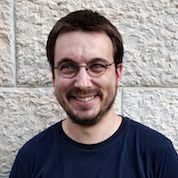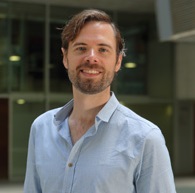Five projects from the BioRegion awarded ERC Starting Grants
<p>Projects from CRG, ISGlobal and IBEC have been selected for their research on oncology, tuberculosis, syphilis and ageing, among others</p>

Five Catalan projects in the healthcare and life sciences have been awarded Starting Grants in the latest call by the European Research Council (ERC) announced this September.
These Starting Grants, with up to €1.5 million for 5 years, are geared towards researchers with 2-7 years of experience since completion of PhD and a scientific track record showing great promise and an excellent research proposal
The quality of the project is the sole selection criterion for these grants, which is why they are considered a good indicator of the level of scientific excellence in the institution and country where the researcher works. The Catalan results make up 5.2% of the 115 European projects selected in life sciences, the same result than Austria or Belgium.
A total of 3,106 projects from around Europe were submitted to the call, in all areas of science. Of these, 408 have been awarded grants.
Alternative treatment for syphilis
Oriol Mitjà, ISGlobal

Oriol Mitjà, ISGlobal researcher, has received support from the ERC to find alternative treatments for syphilis. The last decade has seen an unprecedented rise in sexually transmitted diseases (STD), including syphilis, worldwide. In 2017 alone, Barcelona reported over 1000 syphilis cases. Although an effective treatment for the disease exists (injected penicillin), “there is a need to identify antibiotics that are equally effective but easier to administer, in order to increase adhesion to treatment and reduce transmission rates,” says Mitjà. “The new treatment would be exportable to any context affected by a rise in the disease, and would therefore have a global impact,” he adds. The five-year project will be carried out at the University Hospital Germans Trias i Pujol.
Selectively eradicating tuberculosis
Loris Rizzello, IBEC

Loris Rizzello, IBEC researcher, has received support for the project PANDORA, which focuses on eradicating human tuberculosis. “To do this, I will first identify what are the molecular ‘bar-codes’ of infected cells, namely those specific membrane proteins that cells express upon infection. I will use this to reversely engineer a repertoire of super-selective polymeric nanoparticles that will carry ligands to recognise, bind, and selectively attack infected cells only, while leaving non infected cells completely untouched”, says the researcher.
The evolution of cell types
Arnau Sebés-Pedrós, CRG

Arnau Sebé-Pedrós, Group Leader in the Systems Biology research programme at CRG, has received funding for EvoCellMap, a project tracing the origin and evolution of animal cell types. “To this day, we still don’t know how many cell types there are or how this cellular differentiation evolved in the first place –the researcher says-. Technological advances mean we can molecularly characterize cell types in virtually any organism, and this funding will play a vital role in helping us understand how different cell types evolved. Comparing the molecular underpinning of cell types in different organisms may also identify new molecules and mechanisms we did not know existed, and in turn, help us understand why life exists the way it does today.”
Towards new drugs that block cance proliferation
Sara Sceldi, CRG

Sara Sdelci a Group Leader running a lab in the CRG’s gene regulation, stem cells and cancer research programme, has been awarded for her project EPICAMENTE, that will explore the roles of enzymes in cancer proliferation. “My team will be finding new ways of treating cancer by studying how tumour cells produce energy and building blocks needed to proliferate. If we can identify the enzymes that are critical to helping the cell divide uncontrollably, it could pave the way to new drugs that block the process and spare healthy cells”, Sdelci says.
Mapping the ageing
Nick Stroustrup, CRG

Nick Stroustrup, a Group Leader in the Systems Biology research programme at CRG, has been awarded for his project SYSAGING, which aims to develop new ways of mapping the molecular changes associated with ageing and disease.
